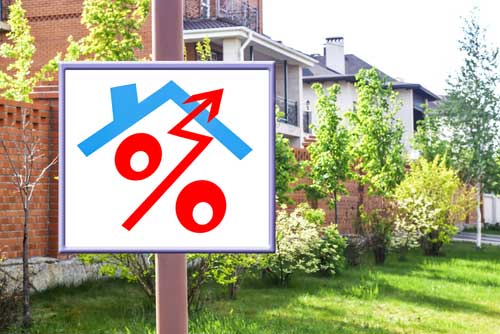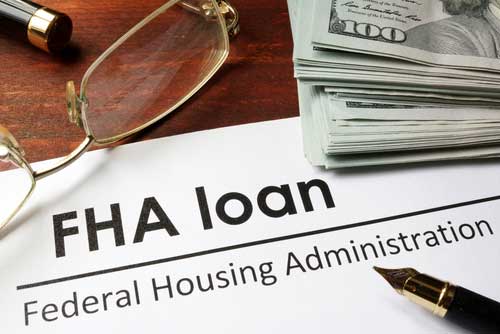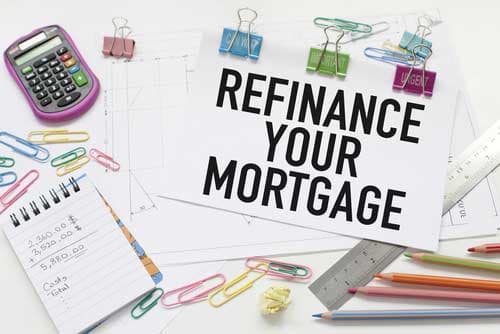Compare The Best Mortgage Rates in University Park, IA

Compare University Park, IA Mortgage Rates
Whether someone intends to buy a new home or refinance the mortgage on their current home for a better deal, it's crucial that they get the best possible mortgage rates. That's where MyRatePlan can make a world of difference in pulling up the best mortgage rates in University Park, IA. We have all the info and tools a home buyer needs to research and compare mortgage rates, which will help them get the lowest interest rate and avoid paying any more than necessary for a home.

Finding the Best Mortgage Rates in University Park, IA
Most of the population does not have enough cash on hand to buy a house outright. A loan is most likely one of the first priorities when one is looking to purchase their house in University Park, IA. Even houses that start at $50,000 will require being approved for a loan for most people. You'll want to know exactly what you will need in order to get a home loan and what types of issues will influence the interest rate you are given. Since you want the lowest interest rate possible, make sure you shop around for the best option.
So how do you make sure you get the lowest interest rate on the market yet still land the house of your dreams? Let's take a look at how to do it. Many real estate agents will provide you with preferred lenders that he or she has done business with before after you find a home that you are interested in. It may sound like the easy way out but many times it isn't. Some real estate agents simply want to move the house as quickly as possible. This may mean the lenders they refer you to may have higher interest rates but will approve you quicker. You may want to get your house quickly, but don't get pushed into a lender that offers only high-interest rates just to save a few weeks. No matter what company you use, check their rates out online to make sure you are comparing every little detail. Using MyRatePlan's mortgage rate tool is the best place to start when you want the lowest interest rate possible.

The Types of Home Loans Available in University Park, IA
Since there's an extensive range of different buyers out there, it makes sense that there are also quite a few different loan products on the market, including fixed-rate mortgages and variable home loans. Those are two of the most common types of mortgages, and each will suit different types of buyers.
When the buyer gets a fixed-rate home loan in University Park, IA, their interest rate stays the same throughout the whole loan term, whether that lasts for 10, 20 or 30 years. With the interest rate staying the same, the monthly payment amount also stays the same. A fixed-rate mortgage is a safe option, because the buyer never has any surprises with how much their home payment is.
As their name suggests, adjustable-rate mortgages (ARMs) in University Park, IA don't have one set interest rate. Instead, the interest rate can go up or down. The most common type of ARM is a combination of an ARM and a fixed-rate mortgage, sometimes referred to as a hybrid ARM. For an initial period, the mortgage has a fixed interest rate. After that, the mortgage's interest rate adjusts on a predetermined schedule. For example, a buyer could get a 6/2 ARM. The six means that the loan has a fixed rate for the first six years. The two means that after that initial period, the interest rate adjusts every two years. The issue with ARMs is that the borrower's monthly payment could go up.

University Park, IA FHA Mortgage Loans
Every borrower will need to decide whether to get a fixed-rate mortgage, an ARM or a hybrid ARM. They also need to figure out if they want to stick to a traditional type of home loan, which is only backed by the mortgage lender, or apply for a government-insured home loan, such as an FHA loan, a VA loan or a USDA loan. With these loans, the federal government is providing insurance or a guarantee on the loan to help the lender avoid heavy losses in the event of a borrower defaulting.
FHA loans in University Park, IA are offered by the Federal Housing Administration, a branch of the Department of Housing and Urban Development, or HUD for short. The FHA has a mortgage insurance program to cover lenders, and its FHA loans are an option for any type of borrower, meaning it's not only first-time borrowers who can get an FHA loan. That mortgage insurance covers any losses the mortgage lender would have if the borrower defaulted. One significant advantage with an FHA loan for the borrower is that they can get one with a much lower down payment, even as low as 3.5 percent of the home's total cost. The drawback with FHA loans is that the borrower must cover the cost of mortgage insurance, which adds to their monthly loan payment. They wouldn't need to pay as much if they put down a larger down payment and got another type of loan.

Refinancing Mortgages in University Park, IA
In University Park, IA, refinancing a mortgage loan is like applying for a new one. The end result of this is that one may have to pay closing costs or any other fees required. This is, however, done when the loan is approved. If one seeks to refinance for the sake of enjoying lower rates, they should carefully consider the consequences of refinancing. The extra costs may offset some savings that one sees from refinancing. The exception to this rule is when one is refinancing from an adjustable rate loan to a fixed-rate loan. The reasoning is that the rates are more likely to go up in the future rather than going down.
Appearing as low-risk is the best strategy for those looking to refinance their mortgage. This can be achieved by keeping one's credit score above 700, keeping one's debt-to-income ratio low, and applying for a fixed-rate loan facility.
Compare The Best Mortgage Rates in
- Cedar, IA
- Thornburg, IA
- Delta, IA
- Searsboro, IA
- Hedrick, IA
- Webster, IA
- Beacon, IA
- Pella, IA
- Rose Hill, IA
- Lovilia, IA
- Harper, IA
- Bussey, IA
- Fremont, IA
- Sigourney, IA
- Kirkville, IA
- What Cheer, IA
- Lynnville, IA
- Eddyville, IA
- Otley, IA
- Reasnor, IA
- Chillicothe, IA
- Hamilton, IA
- Leighton, IA
- Martinsburg, IA
- Harvey, IA
- Blakesburg, IA
- Columbia, IA
- Killduff, IA
- Albia, IA
- Montezuma, IA
- Tracy, IA
- Guernsey, IA
- Hayesville, IA
- Barnes City, IA
- Agency, IA
- Keswick, IA
- Oskaloosa, IA
- New Sharon, IA
- Gibson, IA
- Sully, IA
- Ottumwa, IA
- Ollie, IA
- Deep River, IA
- Knoxville, IA
Find Other Services in University Park, IA
- Business Phone Service in University Park, IA
- Cell Phone Service in University Park, IA
- Business Internet Providers in University Park, IA
- Internet & TV Service Providers in University Park, IA
- Car Insurance Quotes in University Park, IA
- Home Phone Service in University Park, IA
- Health Insurance Quotes in University Park, IA
ZIP Codes in University Park, IA
- 52595


 Menu
Menu